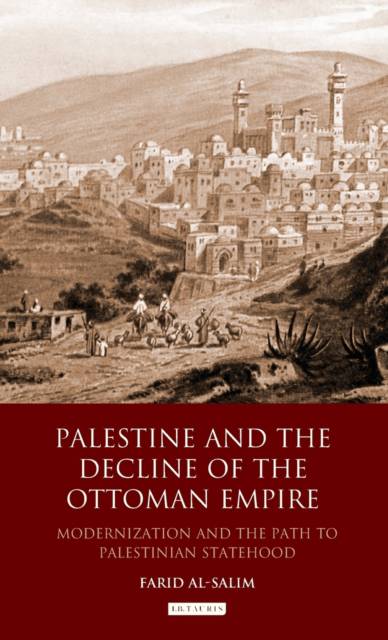
- Afhalen na 1 uur in een winkel met voorraad
- Gratis thuislevering in België vanaf € 30
- Ruim aanbod met 7 miljoen producten
- Afhalen na 1 uur in een winkel met voorraad
- Gratis thuislevering in België vanaf € 30
- Ruim aanbod met 7 miljoen producten
Palestine and the Decline of the Ottoman Empire
Modernization and the Path to Palestinian Statehood
Farid Al-SalimOmschrijving
During the final decades of Ottoman rule, Palestine was administratively divided into two states, Jerusalem and Beirut. Both provinces exhibited a strikingly cohesive history of modernisation, and as the Ottoman Empire began to recede, the education systems, taxation and bureaucracy which were left behind formed the foundation of administration in the Palestinian authority today. The reign of Sultan Abdulmecid I saw great changes in Palestine, in line with the Tanzimat reform programme. These changes included the monetisation of the economy, structural changes in land ownership, legal reform, moves towards Ottoman centralisation and the first European immigration to the area. Education was expanded to the lower classes, and Arab and Palestinian nationalism and Islamic movements began to stir by the end of the century as the first Zionist settlers arrived. At the heart of these radical shifts in thought and infrastructure were the new administrative centres established by the Ottomans during this period of re-organisation.
Drawing extensively on official Ottoman records, Farid Al-Salim charts the transformation of one such centre, Tulkarm, from a small village in central Palestine to a seat of administrative reform in order to provide a new account of the forces behind the formation of modern Palestine.
Specificaties
Betrokkenen
- Auteur(s):
- Uitgeverij:
Inhoud
- Aantal bladzijden:
- 272
- Taal:
- Engels
- Reeks:
Eigenschappen
- Productcode (EAN):
- 9781780764566
- Verschijningsdatum:
- 7/04/2015
- Uitvoering:
- Hardcover
- Formaat:
- Genaaid
- Afmetingen:
- 141 mm x 221 mm
- Gewicht:
- 535 g

Alleen bij Standaard Boekhandel
Beoordelingen
We publiceren alleen reviews die voldoen aan de voorwaarden voor reviews. Bekijk onze voorwaarden voor reviews.







